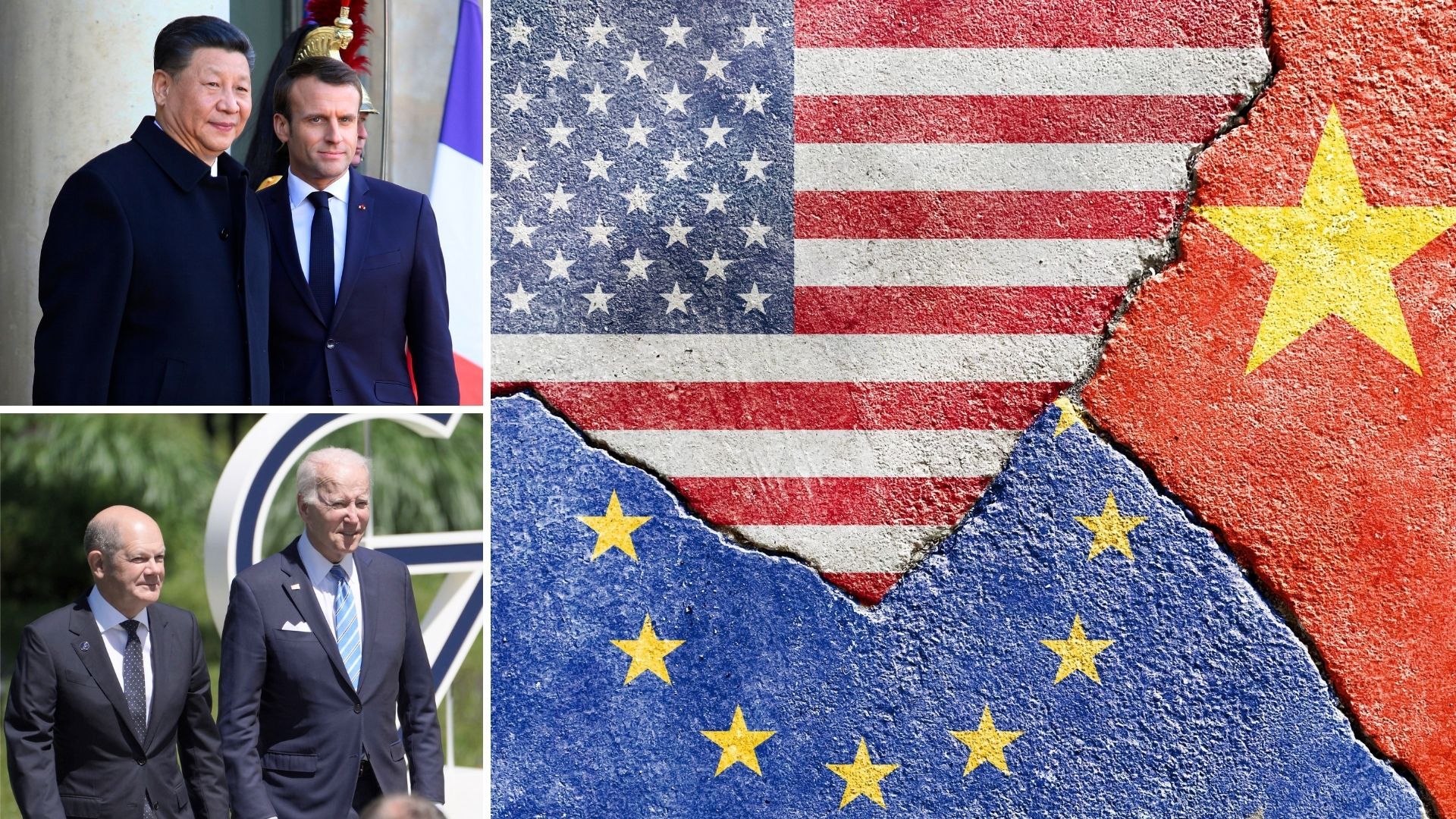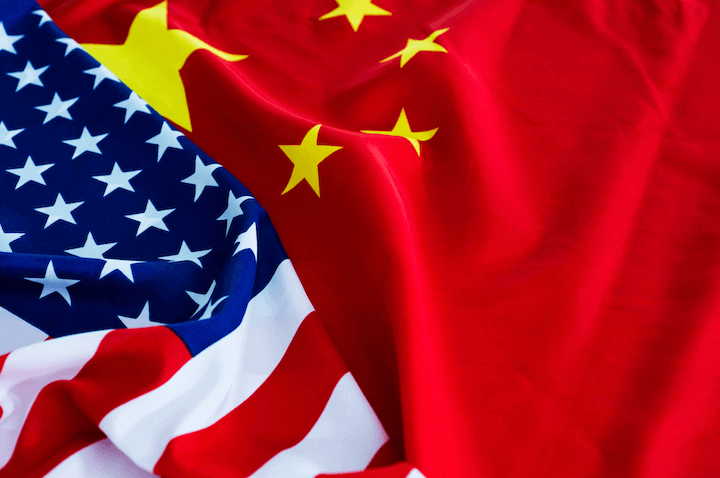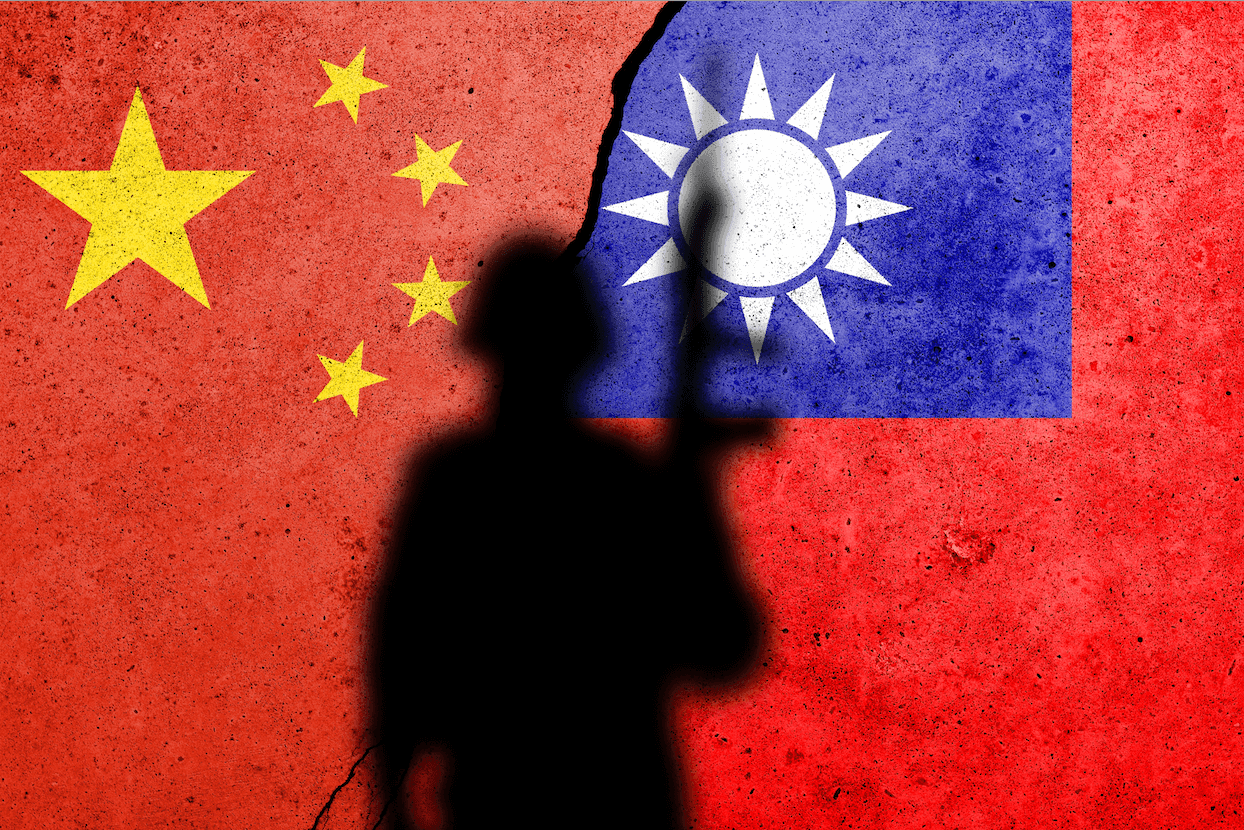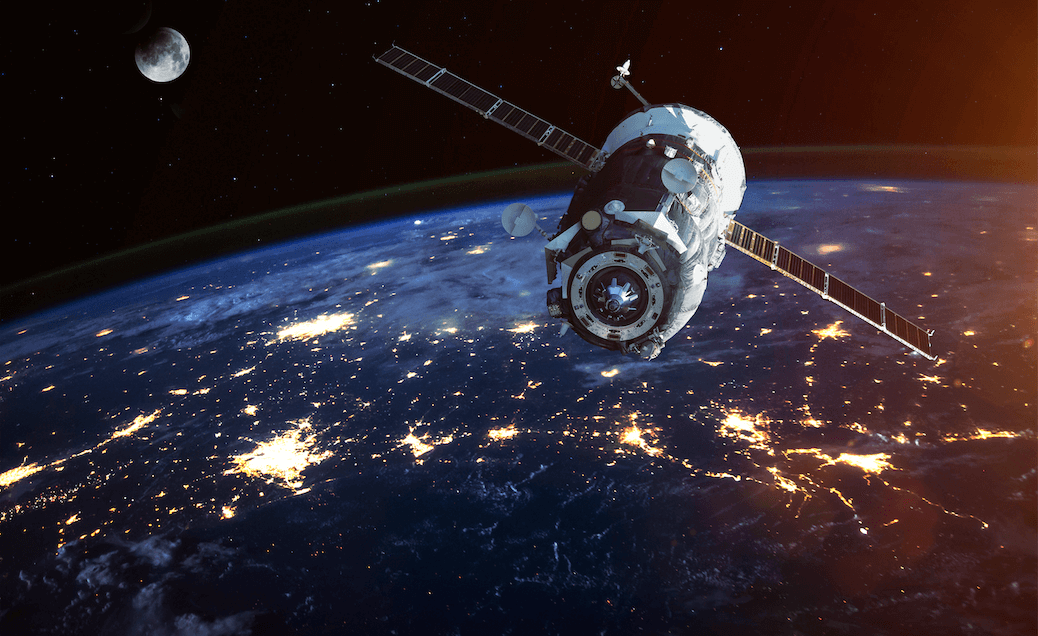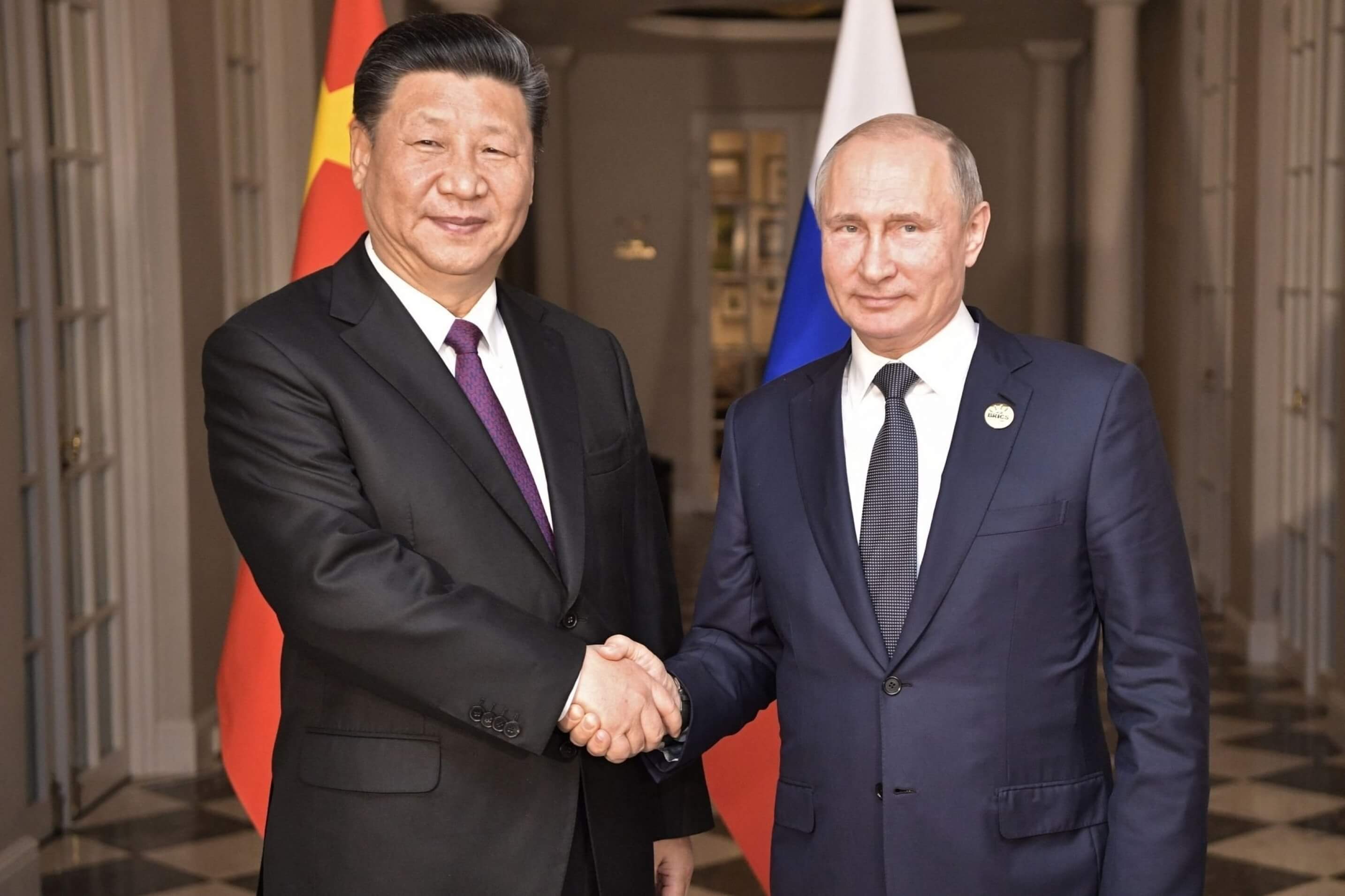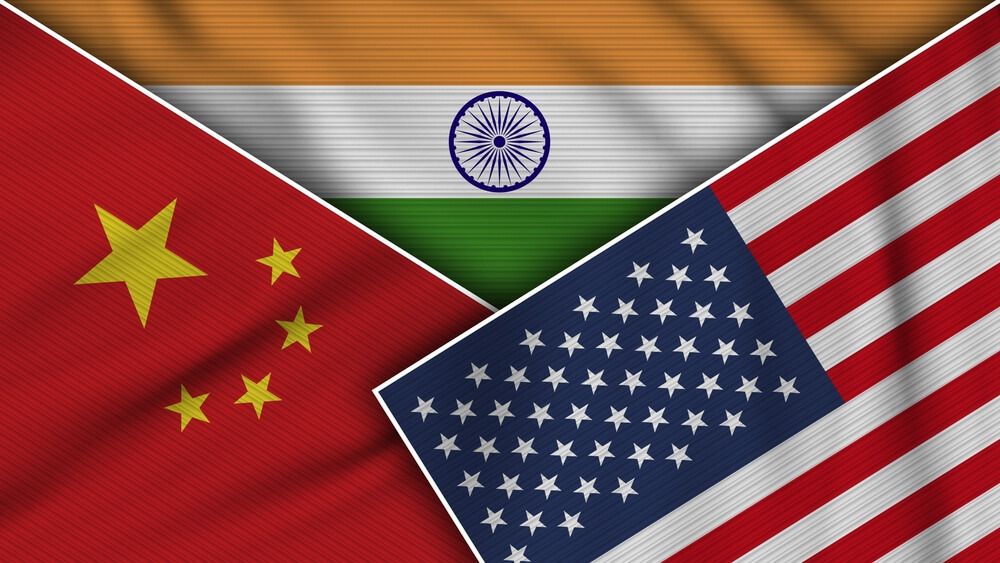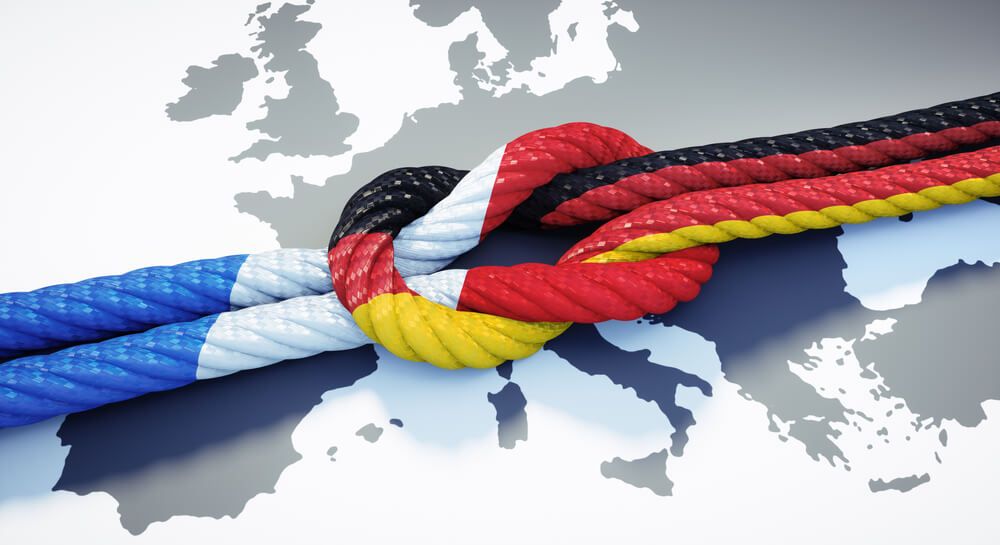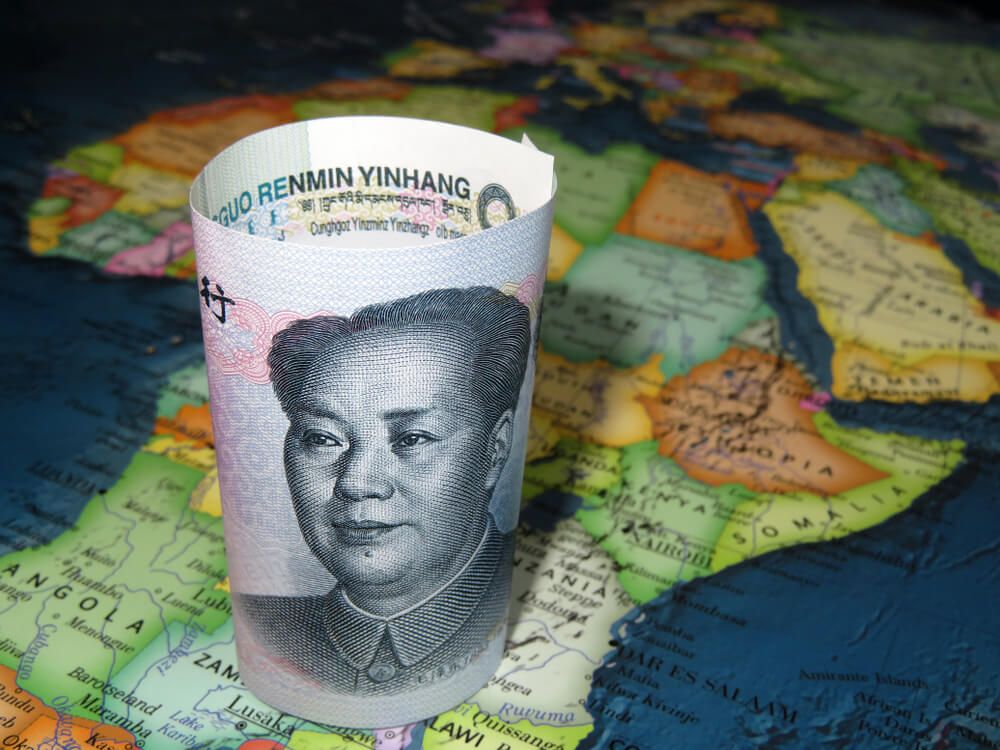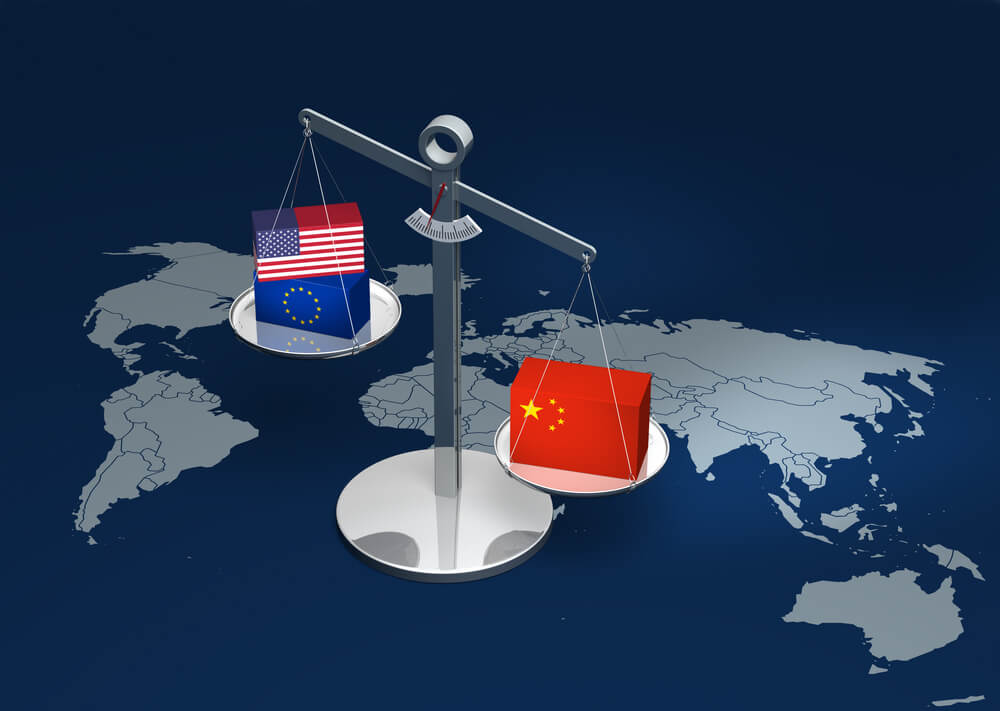For several years, the team at the Institut français des relations internationales (French Institute of International Relations – Ifri)¬ has been closely following the changes in the U.S.-China-Europe strategic triangle in order to anticipate the course of globalization. In 2019, the conference celebrating Ifri’s 40th anniversary, organized at the Sorbonne, was focused on “The Future of Europe in the Context of Sino-American Competition”. In 2020, at the very start of the lockdown in France, a study co-written by seven researchers underlined that the pandemic accelerated previously identified trends, with the European Union (EU) facing both the risk of its “rapid marginalization” and an “unprecedented opportunity: to rally and coordinate countries all around the world that are keen on avoiding getting caught up in the Sino-American rivalry.”
Three years later, the present study, made up of sixteen texts, comes in the wake of Olaf Scholz’s visit to China (November 2022) and precedes Emmanuel Macron’s visit (April 2023). Notably, it comes one year after the start of a geopolitical and geoeconomic shock of rare magnitude: Russia’s invasion of Ukraine.
The War in Ukraine or the Return of Bloc Geopolitics?
The war in Ukraine has broken ties between the EU and Russia for the foreseeable future, particularly in the field of energy, though not without consequences in the Middle East, Africa, and the Indo-Pacific. Furthermore, this war has become the main show of active indirect confrontation between the United States—which has provided military support to Ukrainians, with help from its European allies—and China, which has supported Russia politically and economically. In February 2022, Moscow and Beijing declared their “no limits friendship”; in March 2023, Xi Jinping offered his personal support to Vladimir Putin after the International Criminal Court issued a warrant for his arrest.
In its position on the political settlement of the Ukraine crisis, presented in February 2023, China stated: “All parties should oppose the pursuit of one’s own security at the cost of others’ security, prevent bloc confrontation, and work together for peace and stability on the Eurasian Continent”. China is no more of a mediator than the United States: it would be unrealistic to believe so. We appear to be witnessing a return of bloc geopolitics, albeit in a starkly different context than that of the Cold War (1947-1991). Globalization has produced strong economic and technological interdependencies that make any prospect of decoupling very costly, if not impossible. Economic partners are no longer necessarily military allies, and vice versa. In other words, a gap is opening up between geopolitical perceptions and geoeconomic realities.
The term “decoupling” is popular in the United States, though much less so elsewhere. The rejection of bloc geopolitics is particularly acute outside of the West, where a “pragmatic” approach to foreign policy is often promoted. The Saudi foreign minister summed this up during the World Policy Conference in December 2022: “Polarization is the last thing we need right now. […] We need to build bridges, strengthen connections, and find areas of cooperation”. A few months later, China pulled off an extraordinary diplomatic coup by brokering a deal to restore relations between Riyadh and Tehran.
For the EU, the situation is particularly delicate: Europe is in the Western camp, but a severing of ties with Beijing would cause a crushing economic blow. In 2022, China accounted for more than 20% of the EU’s imports, while the United States accounted for around 12%. By 2030, the EU’s GDP is expected to rise to $20.5 trillion, compared to $30.5 trillion for the United States and $33.7 trillion for China. In January 2023, the President of the European Commission declared at Davos: “We still need to work and trade with China, especially when it comes to this transition. So, we need to refocus our approach on de-risking, rather than decoupling”. For its part, Beijing has encouraged European aspirations of “strategic autonomy”, understood in China as a form of detachment from the United States. At the same time, the EU is constantly strengthening its military, technological, financial and energy ties with the U.S.
Will There Be a War in Taiwan?
By destroying ties between the EU and Russia, the war in Ukraine has opened up a new cycle in Sino-American relations: that of active indirect confrontation. Could this turn into an “unrestricted ” direct confrontation? If so, when? These two questions guide all efforts to forecast the course of globalization: expectations now depend on the likelihood of a war between the two leading world powers. In early 2023, General Michael Minihan of the U.S. Air Force stated: “I hope I am wrong. My gut tells me we will fight in 2025,” probably in Taiwan, and he urged his officers to prepare themselves as soon as possible. A month later, Volkswagen announced a 180-billion-euro investment in both the United States and China, after having judged that China would not invade Taiwan “in the short term” given the damage this would cause to the Chinese economy.
This gap in expectations between the strategic community and part of the business world reveals a paradox: the persistence of the global integration of value chains amid the acceleration of military preparations. Without necessarily being aware of it, these anticipations result from interpretations of the history of Sino-American relations. With the war in Ukraine, everyone should by now understand that economic interdependencies by no means guarantee strategic stability, neither in the past nor today. This is why various actors, in particular large companies, are now attempting to calculate their “geopolitical risk” by incorporating the Sino-American factor, which is progressively putting the European factor into perspective.
By accelerating regional and global reconfigurations, the war in Ukraine raises three fundamental questions. The first concerns the anticipation in Europe of the degree of convergence between China, Russia, and Iran, as well as its consequences for transatlantic relations and for other regions around the world. The second concerns the anticipation of the effectiveness of Washington’s attempts to counter Beijing’s rise in the military and technological domains, but also in terms of alliances. In this respect, the rapprochement between the three countries that make up AUKUS and Japan deserves particular attention. In March 2023, while Xi Jinping was visiting Moscow, the Japanese Prime Minister was visiting Kiev. The final question is the possible attitudes that European countries may adopt in the event of an open conflict in the Taiwan Strait, combined with potential arms deliveries from China to Russia.
This collective study notes a hypothetical search for balance on the part of the Europeans, faced with a war on their territory (the Western peninsula of the heartland), who cannot escape Sino-American mechanisms, and who do not form a monolithic whole. It also analyzes the strategy of several important actors outside our continent, and shows that, from Ukraine to Taiwan, via Africa and the Middle East, Europeans have little room for maneuver. This is why the study proposes recommendations to try, at a crucial moment, to reinforce their positioning.

